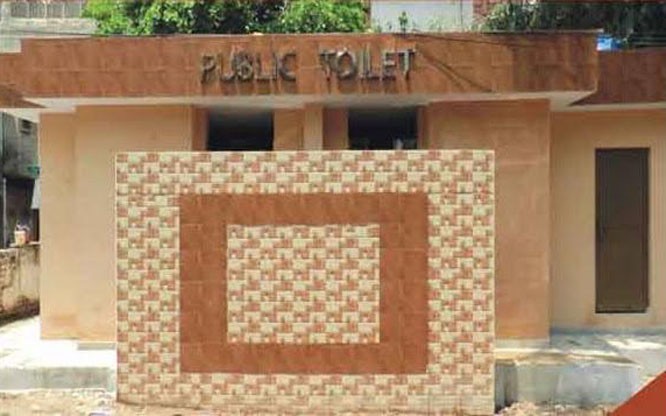
That very basic on-street facility, called public toilets, remain out of site and out of the government’s mind

The group saunters along the road. The five boys had just eaten and drunk to their heart’s content, and were now retiring to their homes. However, having spent the whole day on the road, they were, unsurprisingly, faced with the call of nature.
In the dead of night, with most shops and restaurants closed, the young men, far from any place that would provide them with a toilet, were forced to relieve themselves in a secluded corner on the side of the road. Now, we all know that picture. While not the worst thing that a group of boys could do in today’s age, it was nonetheless a practice from a less civilised age, since most places in today’s world would have public toilets, which a person could avail in their time of need.
Pakistan, however, is not one of those places.
While there are dozens of reasons why Pakistan and similar countries are considered underdeveloped, the lack of public toilets (while not the most pressing issue) is definitely among those that have the most impact on the public life of people in the country.
Here, cities like Paris come to mind. It is widely thought that the French were at the forefront of perfume creation due to the fact that they weren’t in the habit to bathe very often, and used it to mask the smell. A visit to Paris certainly supported this belief, as despite being one of the most beautiful cities in the world, the smell was not something that could easily be forgotten. And if the capital of one of the most well-developed countries in the world (with its public toilets, and technologically advanced ones at that) can smell that bad, an average city in Pakistan, a country already with a poor sewer and waste management system, with the added disadvantage of lack of public toilets certainly has a lot to worry about.
While there are several benefits to having public toilets installed throughout every major metropolitan city in a country, in order to truly understand their importance we need to look at what the country is losing with their absence.
Foremost is the smell that comes along with people relieving themselves at the corner of roads, but beyond that, as was the case with Ancient Greece, disease would be rampant if such activities persisted.
If the world truly has moved beyond the conditions that were prevalent thousands of years ago, and if we truly are at the finest moment in mankind history, then it is hard to believe that simple facilities as public toilets are still sought after in some countries. For someone who hails from what we consider a first world country, the lack of public toilets will certainly be an adverse thing, and will not make them look at Pakistan in a kindly light.
To prevent too many people from squatting behind bushes and between cars parked on roadsides, the government of Punjab announced in March last year to build 60 units of public toilets in different areas of Lahore in the first phase of development and more in the subsequent phases. The first phase would include the construction of 30 toilets for males, 10 for females, 10 for disable males and 10 for disable females. Identified locations for toilets are Karim Block Market, Ichhra, Niazi Chowk, Bekhaywal, Near Mian Mir Darbar, Sabzi Mandi, Lorry Adda, Mauza Raiwind Road, Fateh Garh and Dayal Pull Lahore.
The idea came about after the realisation (better late than never!) to keep the city clear of human waste as per civilised world standards.
Undoubtedly, while it may not be incredibly apparent at first, the lack of public toilets is definitely one of the many reasons keeping Pakistan separated from the well-developed nations of the world. And if this one, seemingly small, facility was provided to the people, perhaps, we would not compromise the basic dignity of the people - and the group of boys will no longer have to cast furtive glances around, or look for secluded corners to conduct their business.